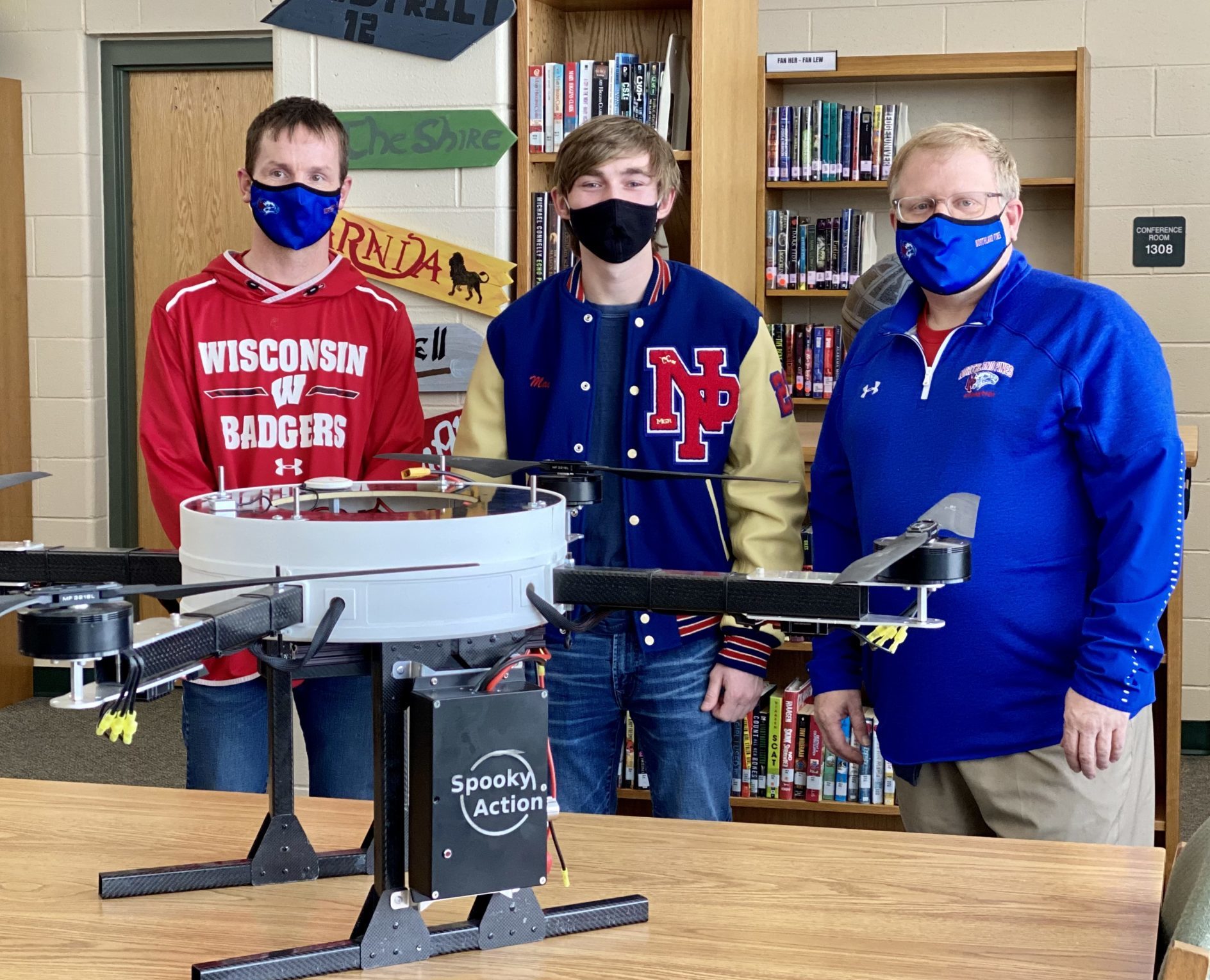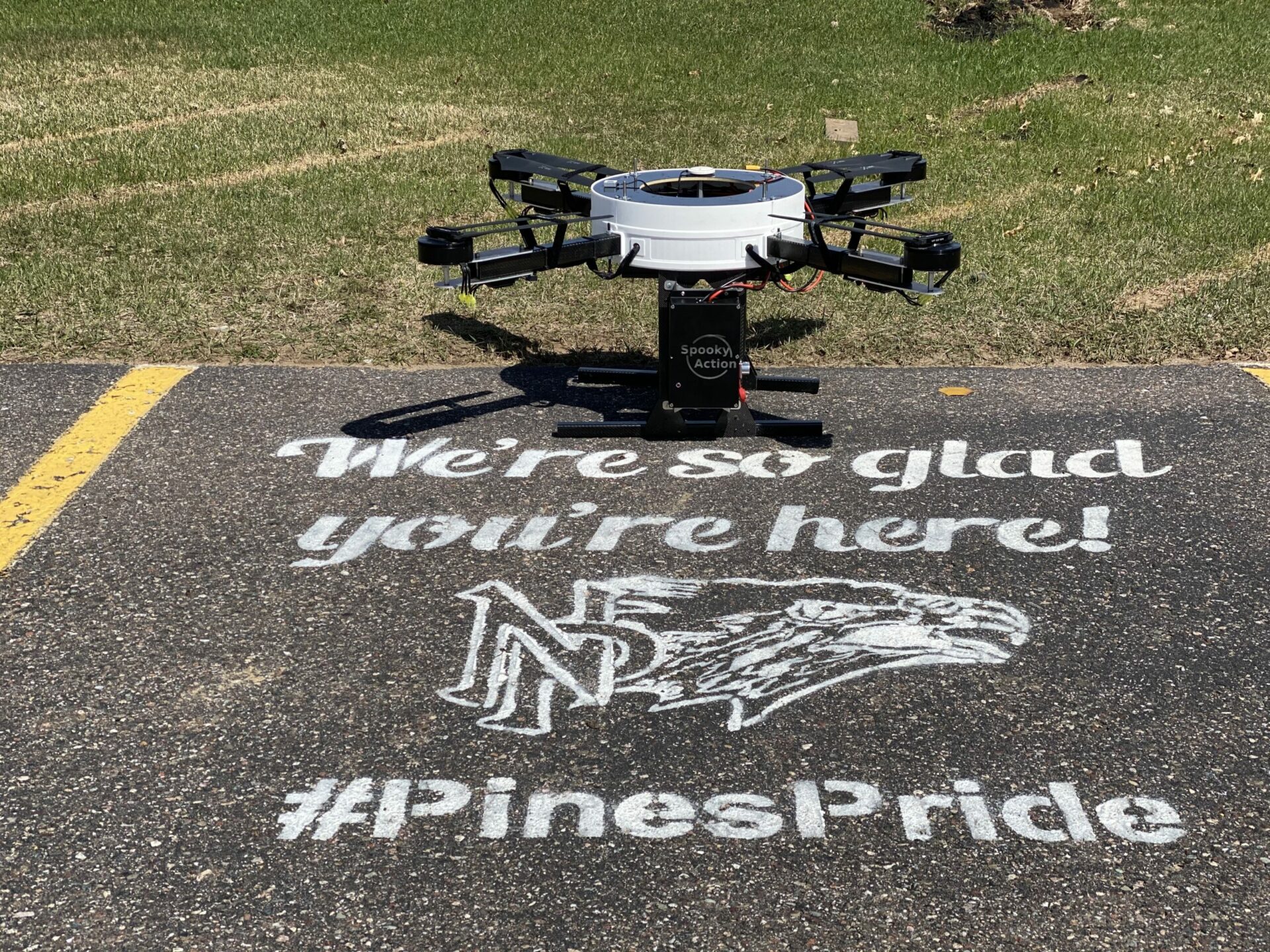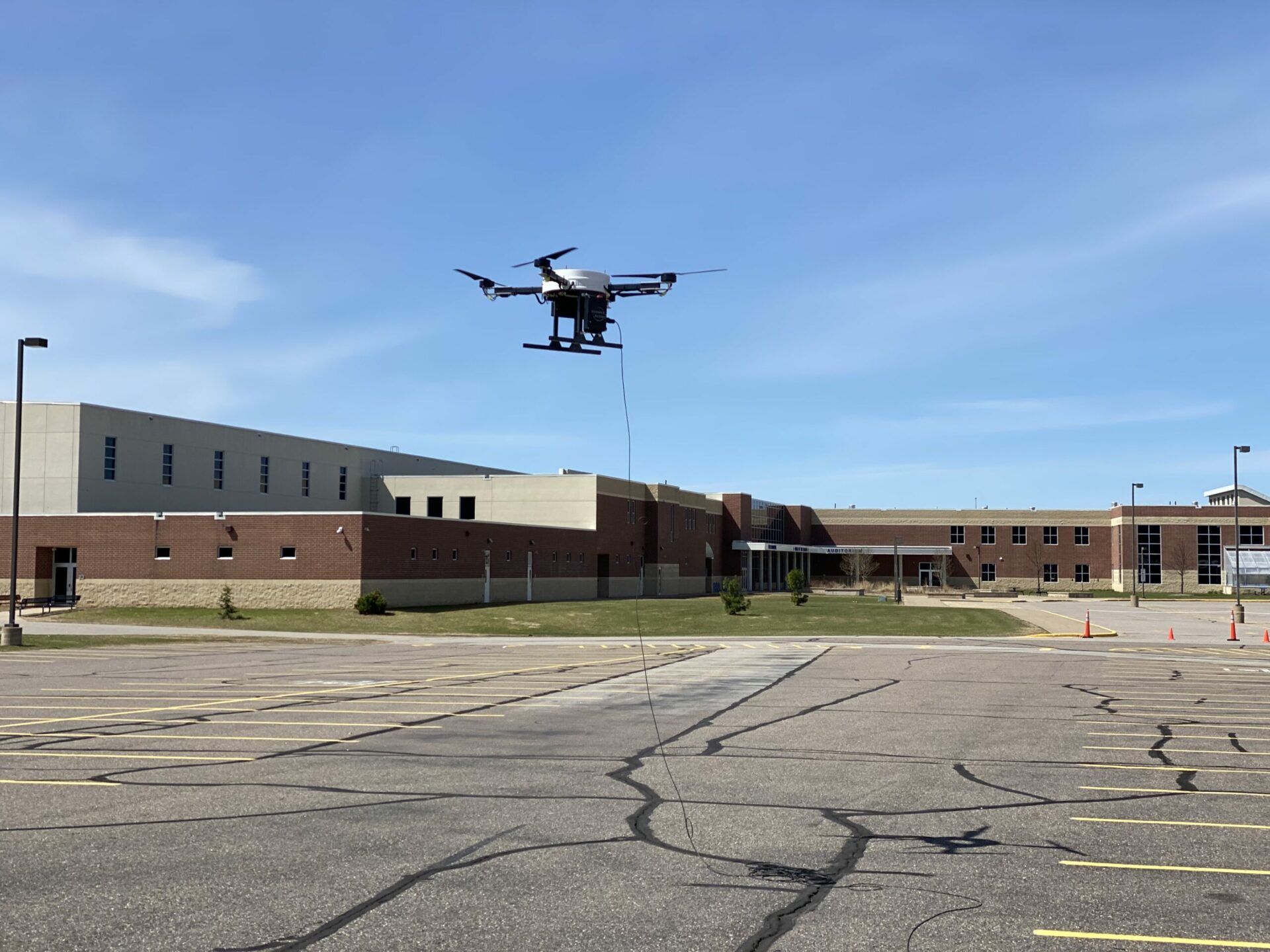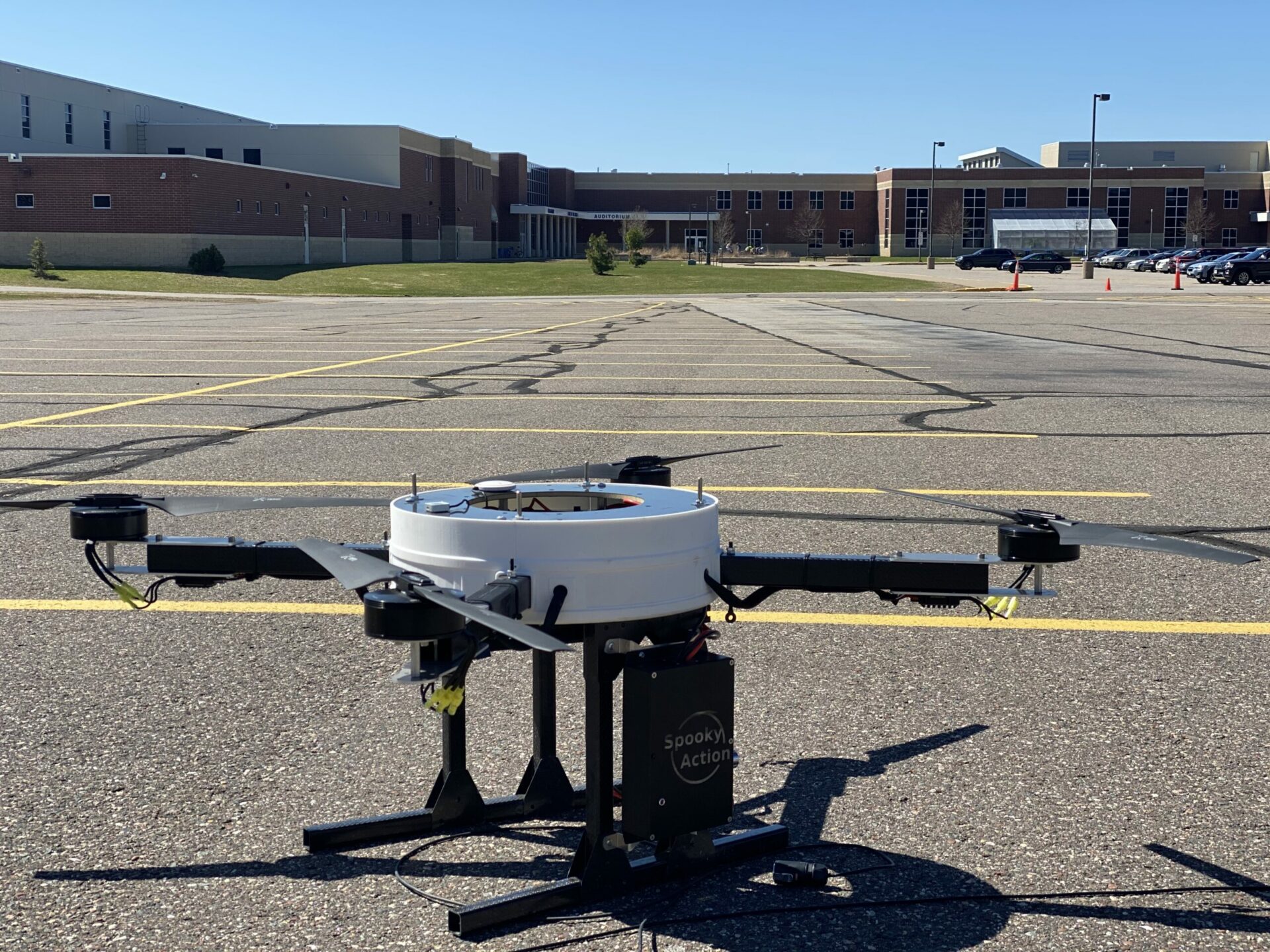

In the spring of 2020, amidst the uncertainty of the pandemic, WEDC, DPI, PSC and local government contacted WiscLift and Spooky Action requesting a pilot program integrating our Telelift Drone System in school settings to help students & faculty in education.
A key part of the project kicked off the end of at February 2021 with the announcement of a partnership between Wisconsin TeleLift and the Northland Pines School District. The project will use the Telelift tethered drone platform fitted with cell phone towers to provide high speed internet access. Dynamic networks can provide academic support during predetermined periods of need throughout the day and then used for other network support during down times. The goal is to work with the school IT staff to hook directly into the school’s network, complete with firewalls in place. “It’s important that if we’re supplying internet to students, we do so with safety in mind,” says LB Williams, WiscLift CEO. Current voucher programs can provide or subsidize ISP costs, however they do not keep students safe from predators or unwanted internet viewing. “With a VPN (virtual private network) we can tap into the school’s secure network, even controlling the amount of hours it’s available. No one needs to be studying at 2:00am,” Williams adds.
The Telelift system is designed to be highly portable and can be set up in minutes once it arrives on site. Scott Foster, District Administrator at NPHS, says that portability is key to the Northland Pines School District. It will allow the district to move the platforms around to see where the service works best and even evaluate where to possibly invest in permanent infrastructure. “And that experimentation and testing may even provide additional lessons for the district’s students,” Foster said. “We just want to continue to look for opportunities for our students. We use technology to bridge gaps. This is the exact spirit we’re after, the perfect model – experimental, entrepreneurial.”
Developer Carl Ruedebusch, who formerly served as chairman of the Vilas County Economic Development Corporation and who now serves on WEDC’s Entrepreneurship and Innovation Committee, contributed $100,000 to the pilot through his Eye on Entrepreneurs Network. “The future is still these young kids, and we can’t have them not having access to the internet,” Ruedebusch said. “If this proves out, then it’s replicable in any school district.”




